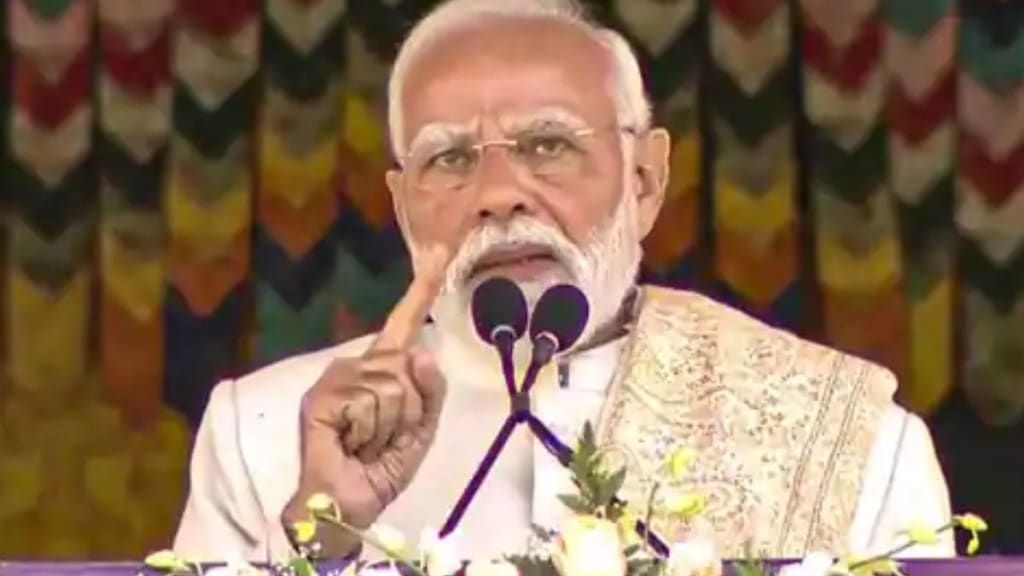Prime Minister Narendra Modi delivered the sixth Ramnath Goenka lecture on Monday evening — urging people to discard their “colonial mindset” within the next decade. He spoke about the “crimes” of Thomas Macaulay and the extensive role he played in ‘warping’ the education system of India. The late historian and politician had led the ‘reformation’ of Indian education policy using Western denominators after reaching the country in 1834.
What did PM Modi say?
“Which country criticises its own languages? Japan, China, Korea, they adopted many global ideas but never compromised on language. This is why our National Education Policy emphasises learning in local languages. We do not oppose English — we support Indian languages,” Modi had asked during the Ramnath Goenka Lecture.
He also stressed the need to take pride in domestic developments and Indian culture rather than trying to adapt Western norms. Modi also cited tourism to underscore his point — noting that India had neglected its own heritage after Independence.
“Macaulay’s crime in 1835 will complete 200 years in 2035, ten years from now. So today, through this platform, I urge the nation: Let the next 10 years be our resolve to free ourselves from this colonial mindset. These ten years are crucial,” the PM urged.
Who was Thomas Macaulay?
The comments made by Prime Minister Modi have sparked extensive debate over the past few days. Opinion articles and social media posts have minutely dissected the contributions of Macaulay this week and political leaders across the spectrum have weighed in with their own stance. But very little has actually been said about the Whig politician who once served as the British Secretary at War.
Thomas Babington Macaulay was born in October 1800 and soon considered a child prodigy. He was educated at Trinity College within the University of Cambridge and won many laurels during his time. His political career took off in 1830 as Macaulay accepted an invite to become a Member of Parliament for Calne.
